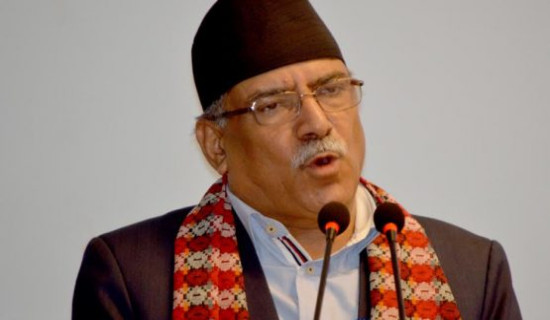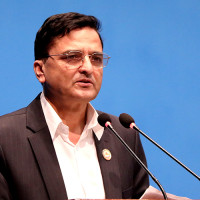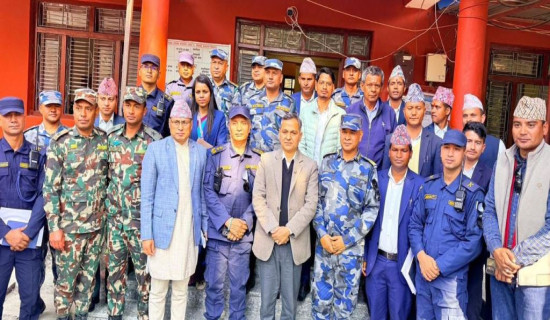- Monday, 2 March 2026
‘Glacier conservation vital for food, energy security’
By A Staff Reporter,Kathmandu, Apr. 23: Minister for Forests and Environment, Ain Bahadur Shahi Thakuri, has said that the conservation of the Himalayan glaciers plays a vital role in ensuring food, water and energy security for South Asia.
Speaking at a “Climber’s Conference” on Tuesday in Thame, Solukhumbu, he said that the issue is not just environmental but directly tied to food security, water availability, energy production and human safety.
Local communities in Thame and other high-mountain regions are already facing increased risks from glacial lake outbursts, water scarcity and energy instability, he said. The conference was organised to draw attention to the escalating impacts of climate change in the Himalayan region.
Minister Thakuri said, “Outside of the Arctic and Antarctic, the Himalayas are the largest repository of frozen water. These mountains are not just scenic wonders, they are lifelines.”
He highlighted how the glaciers feed 10 of the world’s most significant river systems, including the Indus, Ganges and Brahmaputra, directly supporting the basic needs of over 1.9 billion people. The fate of the cryosphere, he said, is inseparably linked to the future of nearly a quarter of humanity.
Calling for regional cooperation, Minister Thakuri said that the impacts of cryosphere degradation know no borders. “Melting glaciers in Nepal can cause floods in northern India and dry deltas in Bangladesh. Hence, the Himalayas must be recognised as a regional public good whose protection is a shared responsibility,” he said.
The village of Thame, located in Khumbu Pasang Lhamu Rural Municipality–5, witnessed a devastating glacial lake outburst flood (GLOF) on August 17, 2023, which resulted in significant loss of life and property.
The conference was organised to draw the attention of the world to the risk of climate change and its impact in Nepal. The conference was jointly organised by the Sathsathi Foundation, with coordination from all three tiers of government.
















